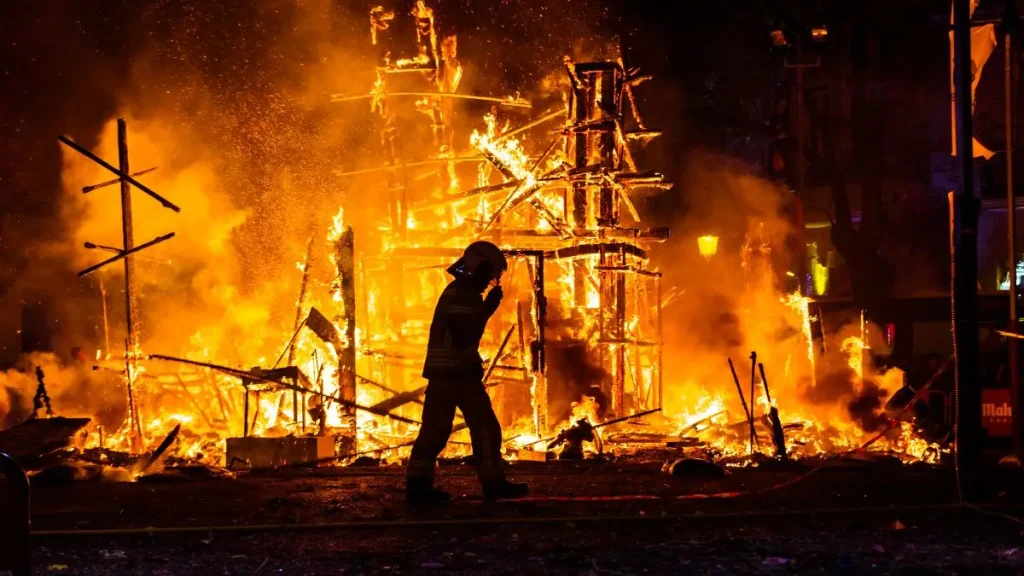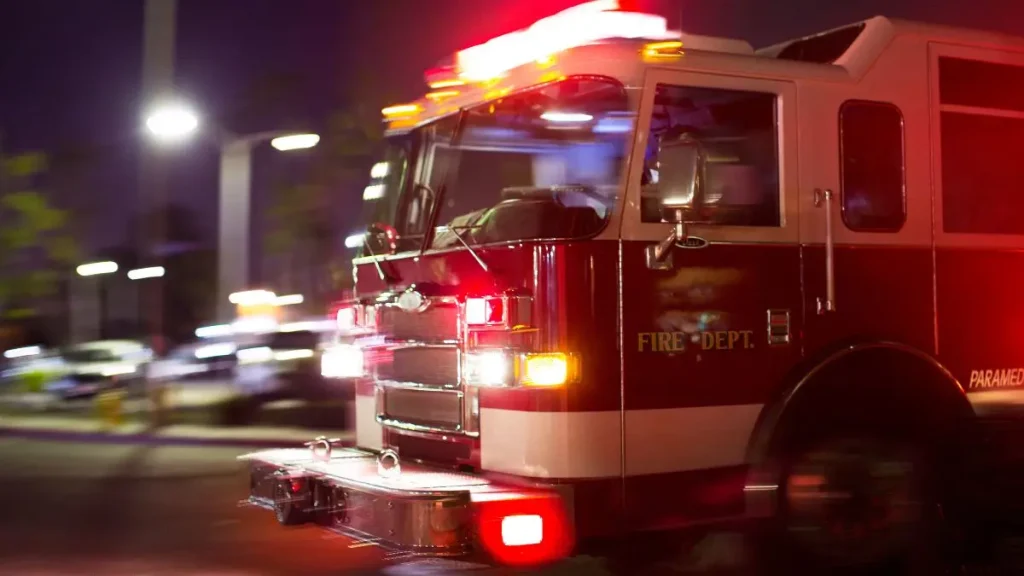Three People, Including Two Children, Die in Mayfair House Fire
I wish I were writing about anything else. But this is real, and it’s heartbreaking.
On Wednesday, July 23, just before sunrise, a fire tore through a rowhome on the 3100 block of Stirling Street in Philadelphia’s Mayfair neighborhood. A grandmother and her two grandchildren didn’t make it out alive.
Fire crews arrived fast—within minutes—but by then, the flames were already spreading to neighboring homes. Inside, a 67-year-old woman was found dead. Two 7-year-old twins—a boy and a girl—were pulled from the fire in critical condition. They were rushed to St. Christopher’s Hospital. Two days later, both children passed away.
Four others survived, including two more kids and two men who were treated on-site. In total, 10 people were displaced.
Fires happen fast. But the consequences last forever.
What do you think needs to change to prevent tragedies like this? Drop your thoughts below—your voice matters.
Inside the Rescue — How Firefighters Battled to Save Lives
When I read what first responders faced that morning, it gave me chills.
It was just before 6 a.m. when firefighters pulled up to the 3100 block of Stirling Street. Heavy flames were already leaping out of the rowhome—and not just from the front. The fire had started spreading to the neighboring units, which is every firefighter’s worst-case scenario in a tight Philadelphia rowhouse block.
According to 6abc, nearly 75 firefighters were called in to control the blaze. That’s no small crew—it tells you how intense things got.
The kids were found inside. Firefighters rescued them and rushed them to St. Christopher’s Hospital in critical condition. It took around 30 minutes to bring the fire under control, but by then, the damage had been done.
If you’re wondering whether the response was fast—yes, it was. But sometimes, even that’s not enough. That’s what makes this so devastating.
Similar early-morning fires have also overwhelmed homes in other states, like this New York house destroyed in a sudden morning blaze, highlighting how fast these tragedies unfold.
Who They Were — Remembering the Grandmother and Twins Lost

As a writer, I try not to get emotional. But this one hits different.
A 67-year-old woman, likely the children’s grandmother, was found dead inside the burning home. Her name hasn’t been released publicly yet. What we know is that she wasn’t alone.
The two children—a 7-year-old boy and girl—were twins. Think about that for a second. Two lives just beginning. Two siblings who probably shared toys, stories, and maybe even that back bedroom where the fire may have started. According to Fox29, they were found alive but unresponsive and later passed away at the hospital.
Neighbors say they heard screams before seeing flames erupt from the home. One witness left balloons and a small memorial near the site. Another said, “They were just too small… they didn’t deserve this.”
I don’t think any of us can read that without feeling something deep. You and I both know—we can’t bring them back, but we can do better.
Just like in the Nashville tragedy where two children were found dead inside their home, this story reminds us how vulnerable kids are in fires.
What Caused the Fire? What Went Wrong Inside That House
Now let’s talk about the part that no one wants to hear—but everyone needs to.
The fire’s exact cause hasn’t been officially confirmed yet, but authorities believe it may have started from an air conditioning unit. In a tightly packed rowhome during peak summer heat, that’s unfortunately a common ignition point.
But here’s what stunned me: there were no working smoke detectors inside the home.
That’s right. Zero.
According to city officials, the last known smoke alarm expired way back in 2007. That’s almost two decades without protection. I can’t help but wonder—could they have survived if an alarm had gone off?
It’s a hard question, but you and I both know it’s the one we need to be asking. Not out of blame, but out of urgency.
Why No Smoke Detectors? The Tragic Oversight That Cost Lives
Let me say this loud and clear: a smoke detector costs less than a dinner out—but it can save an entire family.
The Philadelphia Fire Department later confirmed that the Mayfair rowhome had no working smoke detectors installed. That’s not just an oversight. That’s a warning shot for every single home in this city.
The city has a program—Philly311—offering free smoke detector installations, and they’ve already installed over 6,500 detectors this year alone.
You don’t even need to buy one. You just have to call. But too many families still don’t know—or don’t act.
If your home doesn’t have a working alarm—or you haven’t checked it in years—please, please fix that today. I’m not saying it out of fear. I’m saying it out of everything we just lost.
In other recent incidents, like this Cedar Park fire where no one was hurt thanks to quick response, functioning alarms and rapid alerts made all the difference.
Why Mayfair’s Rowhomes Are at Higher Risk — And What You Can Learn

If you live in a rowhome, especially in Mayfair or Northeast Philly, you need to know this: the way these homes are built makes fires more dangerous.
They’re connected. Wall to wall. One spark in one unit can turn into five burning homes in minutes.
Mayfair has a lot of older housing stock, especially built pre-1970s. That often means outdated wiring, uninsulated walls, and limited fire barriers between units. Air conditioners plugged into old sockets. Dry wood frames. Sometimes no fire escapes at all.
And this isn’t the first time. Remember the 2022 Fairmount fire that killed 12 people in a duplex with no working detectors? Same pattern. Same tragedy. Different zip code.
You and I? We can’t wait for the next fire to learn this lesson.
What You and I Can Do — Simple Fire Safety Steps That Save Lives
I know how easy it is to take fire safety for granted. You’ve probably walked past your smoke alarm a hundred times without a second thought. I used to do the same. But after what happened in Mayfair, I can’t ignore it—and neither should you.
Here’s what I want you to check right now:
- Smoke alarms: Press the test button. If it doesn’t beep, replace the battery or the whole unit. If it’s over 10 years old, it’s expired—even if it looks fine.
- AC units and electricals: Don’t overload outlets. Avoid running old units overnight. One spark can set a room ablaze.
- Have an escape plan: Know two ways out of every room. Walk your kids through it. Practice, just like a fire drill at school.
If you’re in Philadelphia, you can get smoke detectors installed for free. Just call Philly311. It takes 5 minutes to schedule—and could mean a lifetime.
Want more safety checklists like this? I’ve been sharing quick home safety tips on a WhatsApp channel that’s full of updates, real stories, and prevention guides. You might find it helpful—especially if you’re responsible for others at home.
Final Thoughts
I wish we didn’t need stories like this to wake us up. But sometimes, tragedy is what it takes to remind you and me of what really matters—the people under our roof and the safety we take for granted.
So if you’re reading this right now, let this be more than just news. Let it be a moment of change. Test your alarms. Talk to your kids. Look out for your neighbors.
Because the next fire could be one street away—or one decision away.
Looking for more real-life home safety stories and prevention tips? Explore our latest updates on Build Like New and stay prepared for what matters most.
Disclaimer: This article is based on publicly available news reports and official statements as of publishing. Details may evolve as investigations continue. Always refer to local authorities or the Philadelphia Fire Department for verified updates.


